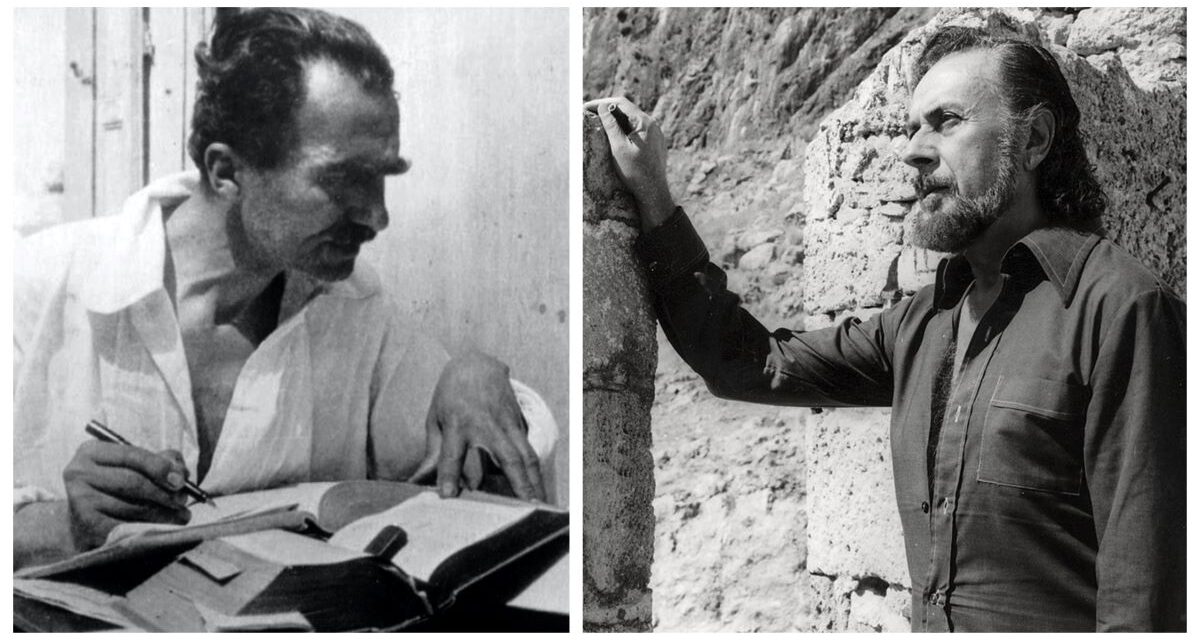The Nobel Prize in Literature is a Swedish literature prize that is awarded annually, since 1901, to an author from any country who has, in the words of the will of Swedish industrialist Alfred Nobel, “in the field of literature, produced the most outstanding work in an idealistic direction.” The Nobel Prize in Literature has been awarded 116 times to 120 Nobel Prize laureates between 1901 and 2023.
It has been a little more than 60 years since in December 1963, Greek poet and diplomat Giorgos Seferis was awarded the Nobel Prize for Literature “for his eminent lyrical writing, inspired by a deep feeling for the Hellenic world of culture”. In his acceptance speech the Greek poet and diplomat chose to emphasize his humanist philosophy, concluding: “When on his way to Thebes Oedipus encountered the Sphinx, his answer to its riddle was: ‘Man’. That simple word destroyed the monster. We have many monsters to destroy. Let us think of the answer of Oedipus.” This anniversary is a great opportunity for us to look back at the Greek writers who were nominated the Nobel Prize in Literature, beyond the well known laureates Giorgos Seferis and Odysseas Elytis.
Nominees
One-Time Nominees
Giorgos Theotokas, novelist, essayist, lawyer and one of the most prominent figures of the Generation of the ’30s, whose major essay entitled Free Spirit , became the manifesto of that generation” exemplifying a desire to modernize Greek literature, was nominated for the 1945 Nobel in Literature.
Georgios Drosinis, author, poet, scholar, editor and considered to be a co-founder of the New Athenian School, that is the Greek literary Generation of the 1880s, was nominated for the Nobel Prize in Literature in 1947. Also nominated one time of the Nobel Prize the same year was Gregorios Xenopoulos, a novelist, journalist and playwright from the island of Zakynthos.
Melpo Axioti, the only woman on this list, was a prose and poetry writer, member of the Greek WWII Resistance and a political exile. Her first novel “Difficult Nights” (1938) introduced a modernistic style to Greek literature and she has nominated of the Nobel Prize in 1956.
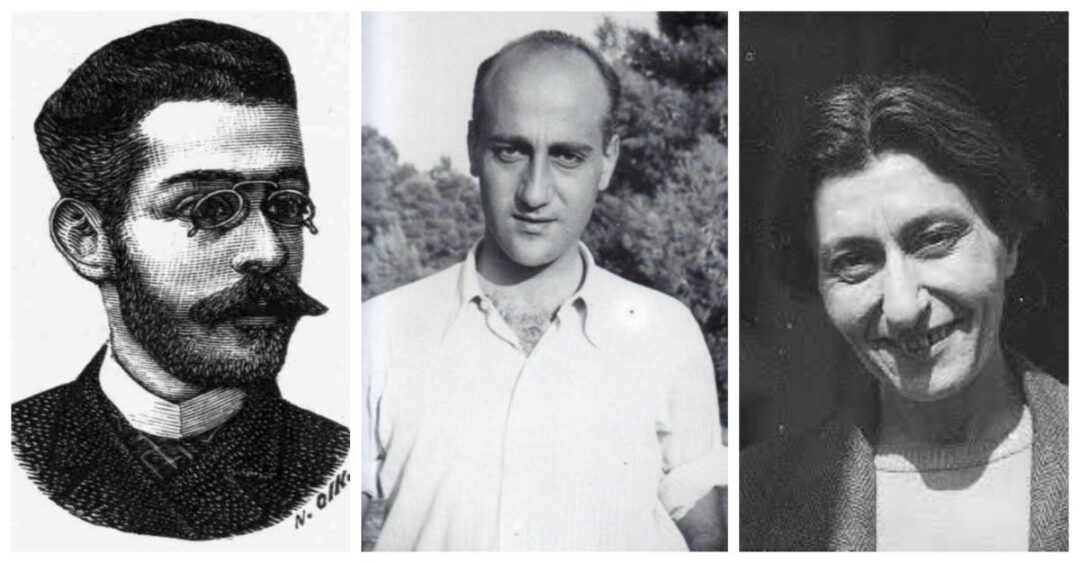
Multiple Nominations
Playwright, polymath, writer and Professor of History Demetrios Bernardakis, whose most known work is “Fausta,” was nominated twice, in 1904 and 1905.
Georgios Souris, satirical poet and journalist, was considered to be one the greatest satirical poets of modern Greece and characterized by many as a “modern Aristophanes.” He had been nominated for the award a total five times, almost every year from 1907 to 1912.
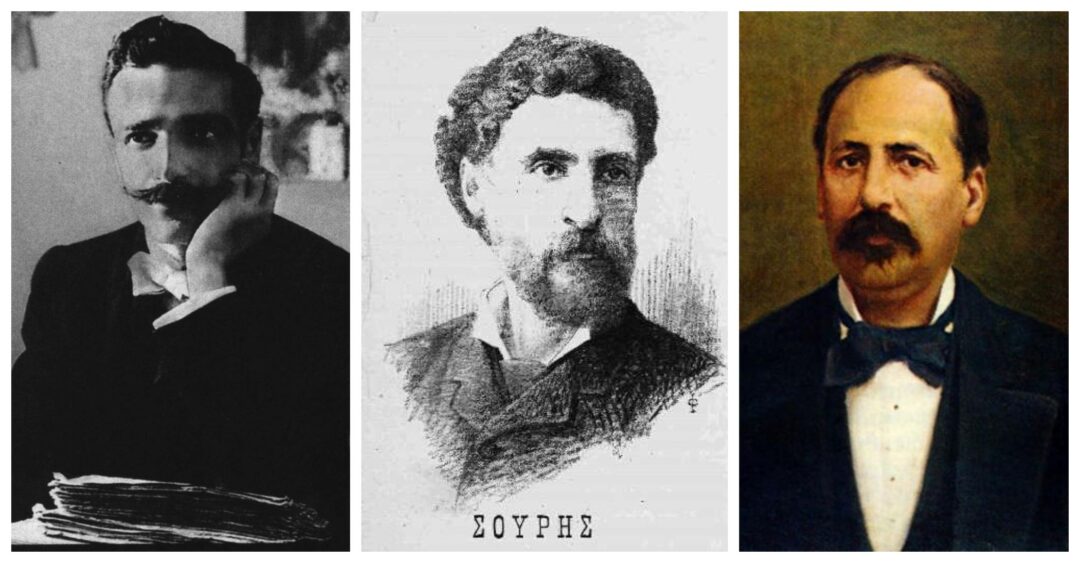
Elias Venezis is a writer whose major novels are about his life in Asia Minor; Land of Aeolia (1943) describes the lost Eden of his childhood summers, and Number 31328 (1924) the horrific experience of the death marches. He was nominated twice, in 1960 and 1963.
Stratis Myrivilis, also from Asia Minor and another important figure of the “Generation of the 30s” was nominated for the Nobel Prize in Literature three times (1960, 1962, 1963). His landmark novel Life in the Tomb (1924) is the most celebrated Greek work on the subject of the First World War.
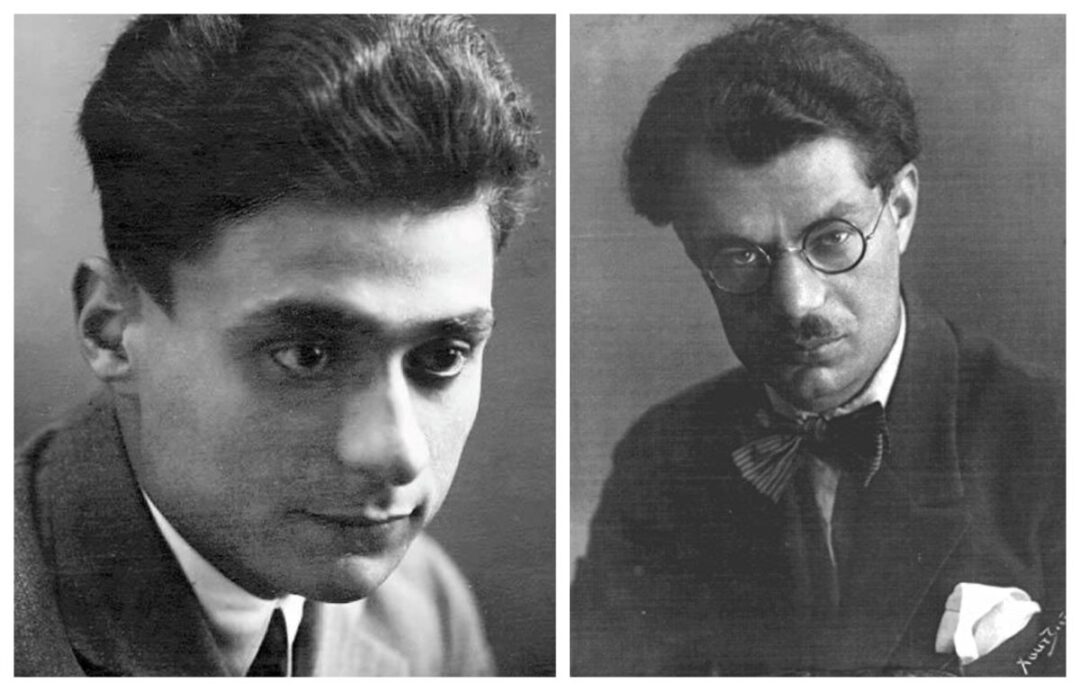
Kostis Palamas, considered by many to be Greece’s national poet, wrote the words to the Olympic Hymn and was a key figure of the generation of the 1880s known as “the New Athenian School.” He was nominated an impressive total of fourteen times for the Nobel Prize, almost every single year from 1926 until 1940.
Angelos Sikelianos, a lyric poet and playwright, whose themes include Greek history, religious symbolism as well as universal harmony in poems, is considered one of the leading 20th-century Greek lyrical poets. In 1927, in collaboration with his wife, Eva Palmer-Sikelianos, he held the Delphic Festival as part of his general effort towards a revival of the ‘Delphic Idea’. He has been nominated nominated six times for a Nobel Prize in Literature, every year from 1946 until 1951.
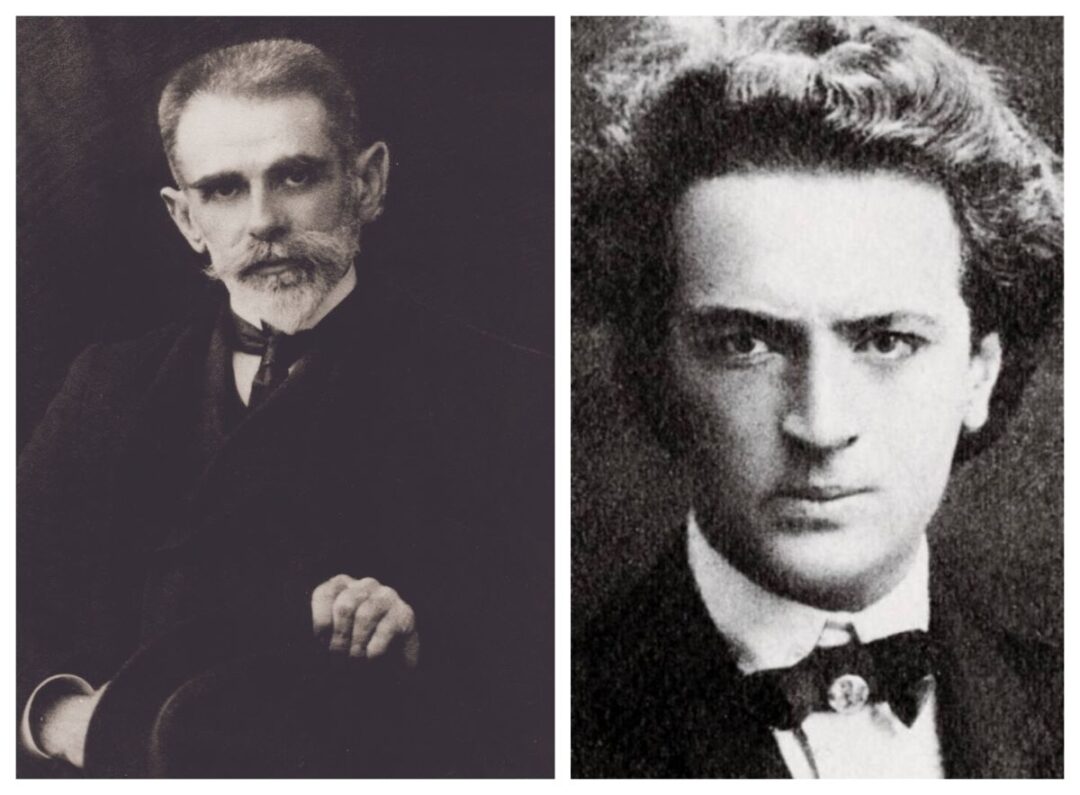
Nikos Kazantzakis is one of Greece’s most internationally acclaimed novelists; he was also a journalist, a politician, a poet and a philosopher. Kazantzakis’s novels include Zorba the Greek (1946), Christ Recrucified (1948), Captain Michalis (1950, translated Freedom or Death), and The Last Temptation of Christ (1955). He also wrote plays, travel books, memoirs, and philosophical essays, such as “The Saviors of God: Spiritual Exercises”. His fame spread in the English-speaking world due to cinematic adaptations of Zorba the Greek (1964) and The Last Temptation of Christ (1988). He remains the most translated modern Greek author worldwide and he was nominated nine times for the Nobel prize (in 1947, and every year from 1950 to 1957).
Yiannis Ritsos is considered to considered one of the great Greek poets of the twentieth century; “Yannis Ritsos,” wrote Peter Levi in the Times Literary Supplement of the late Greek poet, “is the old-fashioned kind of great poet. His output has been enormous, his life heroic and eventful, his voice is an embodiment of national courage, his mind is tirelessly active.” Plagued by turberculosis, family misfortunes, and repeated persecution for his Communist views, he spent many years in sanatoriums, prisons, or in political exile, while producing more than 100 poetry collections, 9 novels, and 4 theatrical plays. Epitaphios (1936), Romiosini (1945-47) and Moonlight Sonata (1966) are three of his best-known works. He was twice nominated for a Nobel Prize, in 1971 and 1979, when it is said the Academy suggested that he and Odysseas Elytis share the prize, but they both declined the offer.
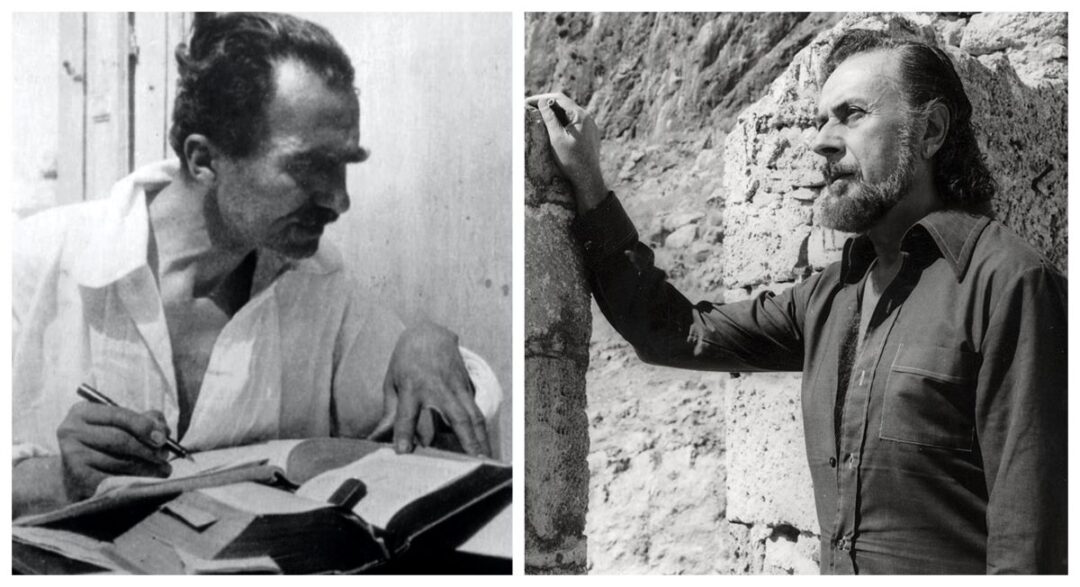
Nobel Laureates
Odysseas Elytis was a Greek poet, man of letters, essayist and translator, regarded as the definitive exponent of romantic modernism in Greece and the world; his work has been translated in 29 languages. He is one of the most praised poets of the second half of the twentieth century, with his Axion Esti (Worthy As It Is) regarded as a monument of contemporary poetry. In 1979, he was awarded the Nobel Prize in Literature. The Swedish Academy declared in its presentation that Elytis’ poetry “depicts with sensual strength and intellectual clearsightedness, modern man’s struggle for freedom and creativeness. . . . [In] its combination of fresh, sensuous flexibility and strictly disciplined implacability in the face of all compulsion, Elytis’ poetry gives shape to its distinctiveness, which is not only very personal but also represents the traditions of the Greek people.”
Giorgos Seferis was a poet, esseyist and diplomat, considered one of the most important Greek poets of the 20th century, and a Nobel laureate. He was the first Greek to win the Nobel Prize in Literature in 1963, “for his eminent lyrical writing, inspired by a deep feeling for the Hellenic world of culture.” He had been nominated for the Nobel twice (in 1955 and 1961). Often compared during his lifetime to T.S. Eliot, whose work he translated and introduced to Greece, George Seferis is noted for his spare, laconic, dense and allusive verse in the Modernist idiom of the first half of the 20th century. At once intensely Greek and a cosmopolitan of his time (he was a career-diplomat as well as a poet), Seferis better than any other writer expresses the dilemma experienced by his countrymen then and now: how to be at once Greek and modern. His established poetry begins with the collection “Novel” (1935), which consists of 24 poems “Sterna”, “Exercise Notebook”, the “Deck Diary” (A ‘, B’ and C ‘) and “Kichli” are just some of the most important works of the great poet.
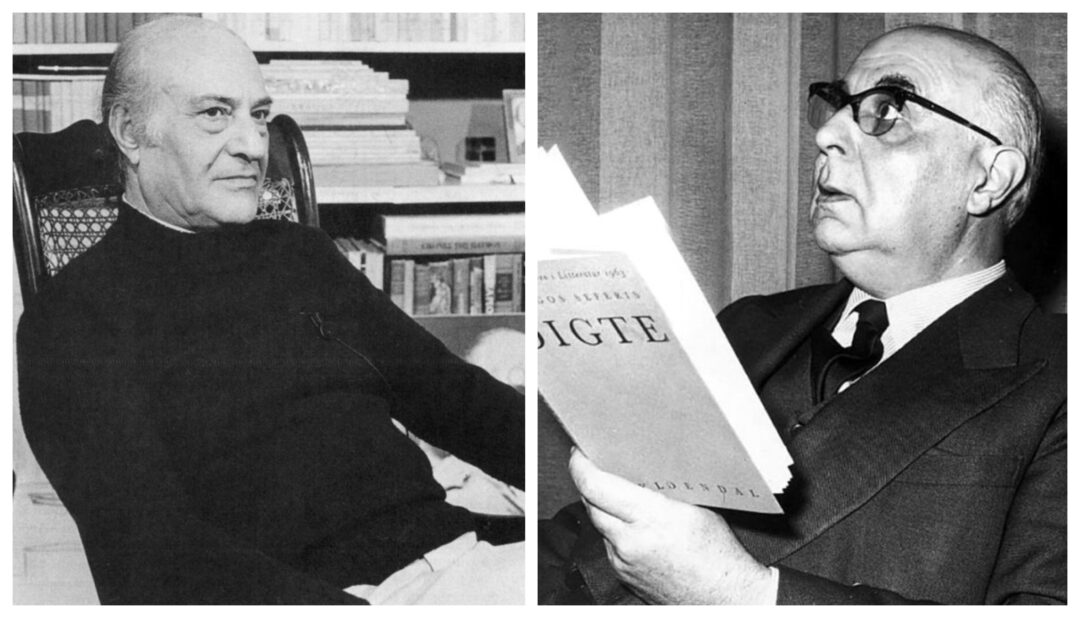
I.L.
TAGS: GLOBAL GREEKS | LITERATURE & BOOKS | POETRY

